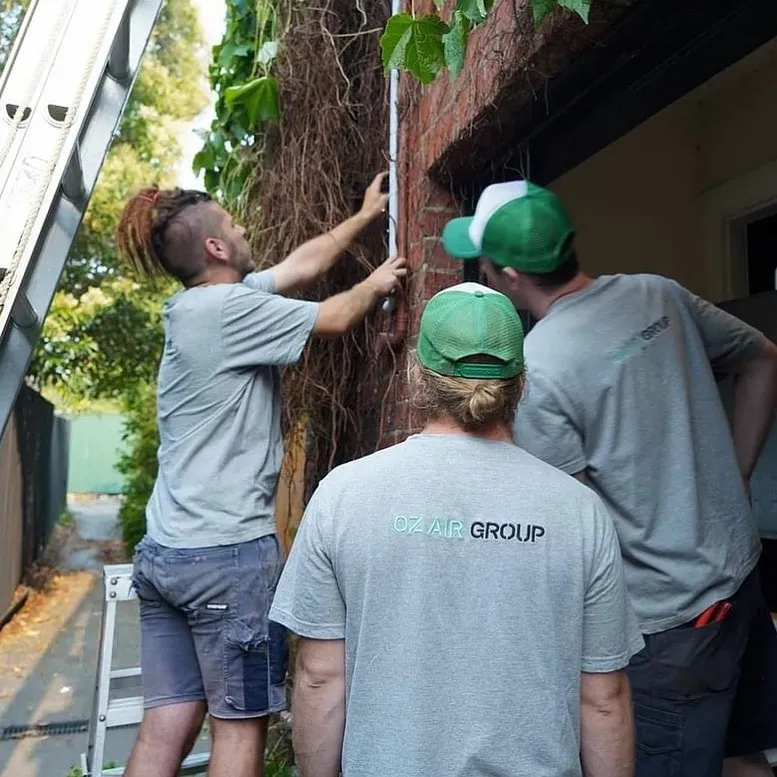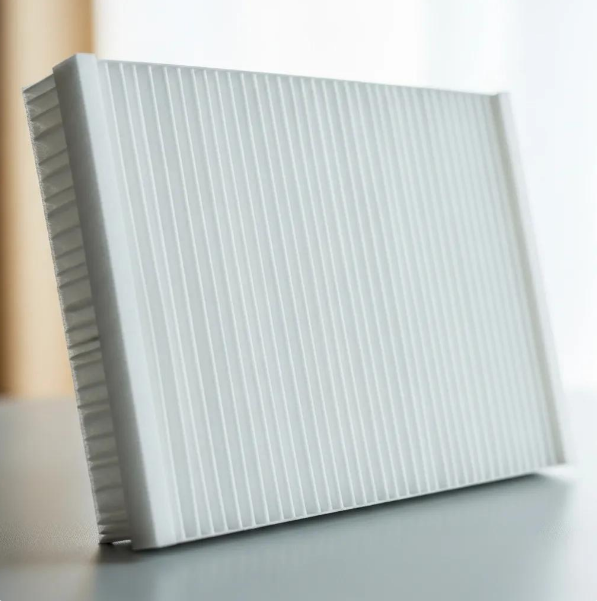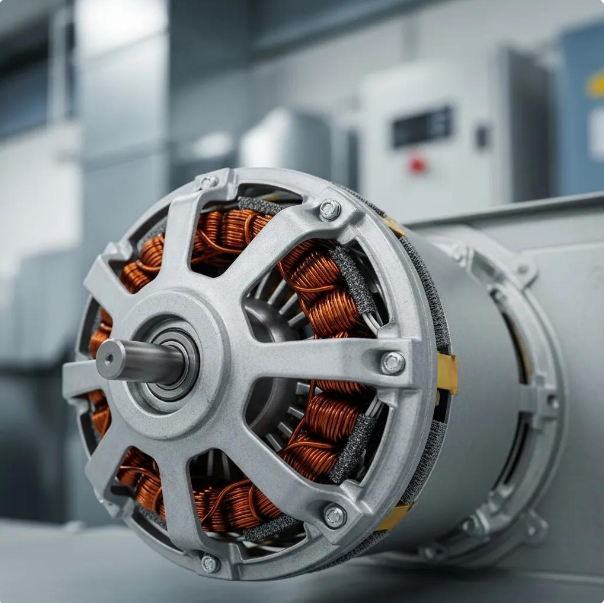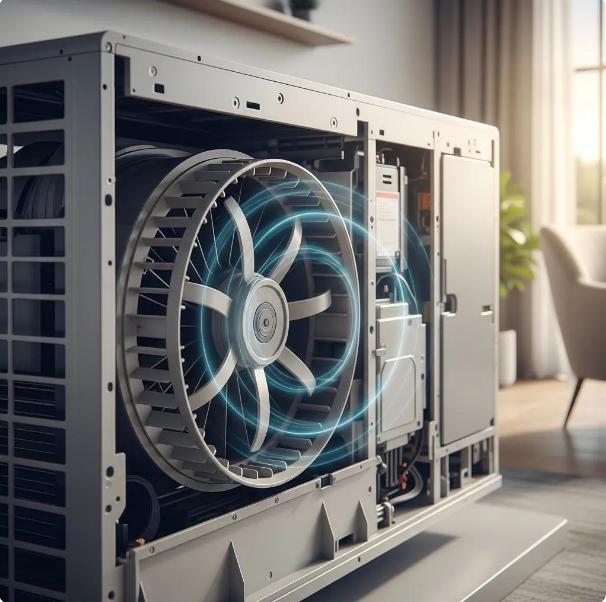Permits Required to Install Air Conditioning in Victoria


Government Rebates Now Available on Energy-Efficient Air Conditioners when Replacing your Gas Heater.
Permits for air conditioning installation in Victoria are official documents that grant permission to install air conditioning systems in accordance with local regulations. These permits are required to ensure that installations meet safety standards, comply with building codes, and adhere to environmental regulations.
The Victorian government requires these permits to protect both residents and the environment. They help minimise safety risks associated with improper installations and reduce the environmental impact of air conditioning systems. Victoria regulates air conditioning installations through various bodies, including local councils and the Victorian Building Authority.
Contacting licensed and qualified professional air conditioning installers is important because they understand the permit requirements and can ensure compliant installations. These professionals, like those at Oz Air Group in Melbourne, have the expertise to navigate the permit process and install systems that meet all regulatory standards.
What Is the Importance of Installation Permits for Air Conditioning?
Installation permits for air conditioning are important because they promote safety and compliance. These permits:
- Minimise safety risks associated with electrical hazards and refrigerant leaks
- Ensure compliance with building codes and local regulations
- Protect consumers by ensuring installations meet quality standards
- Help maintain property values by documenting proper installation
- Support environmental protection efforts by ensuring the use of approved refrigerants and energy-efficient systems
How Bad Is Air Conditioning for the Environment?
Non-compliant air conditioning systems can have significant negative environmental impacts. The main issues are:
- Energy consumption: Inefficient air conditioners use more electricity, which often comes from fossil fuel sources. This increased energy use contributes to higher greenhouse gas emissions.
- Refrigerant use: Some refrigerants, if leaked, can contribute to ozone depletion and global warming. Older refrigerants like chlorofluorocarbons (CFCs) and hydrochlorofluorocarbons (HCFCs) are particularly harmful to the ozone layer.
These environmental concerns highlight the importance of choosing energy-efficient air conditioning systems. Energy-efficient models use less electricity, which reduces greenhouse gas emissions associated with power generation. Additionally, modern systems often use more environmentally friendly refrigerants, further reducing their environmental impact.
How to Minimise the Environmental Impact of Air Conditioning Systems
To reduce the environmental impact of air conditioning systems:
- Choose energy-efficient models: High energy efficiency in air conditioning systems reduces greenhouse gas emissions associated with electricity consumption.
- Use low-impact refrigerants: Modern refrigerants with lower global warming potential minimise environmental damage from potential leaks.
- Proper maintenance: Regular servicing ensures systems operate at peak efficiency, reducing energy waste.
- Correct sizing: Properly sized systems for the space avoid unnecessary energy consumption.
- Smart thermostats: These devices optimise system operation, reducing overall energy use.
- Improved insulation: Better insulation in buildings reduces the workload on air conditioning systems.
What Is Ozone Protection and Synthetic Greenhouse Gas Management Regulations?
The Ozone Protection and Synthetic Greenhouse Gas Management Regulations are Australian federal laws that control the import, export, and manufacture of ozone-depleting substances (ODS) and synthetic greenhouse gases (SGGs). These regulations aim to protect the ozone layer and reduce greenhouse gas emissions.
The ozone layer is a region of Earth's stratosphere that absorbs most of the Sun's ultraviolet radiation. Ozone Depleting Substances (ODS) are chemicals that damage this protective layer. Synthetic Greenhouse Gases (SGGs) are man-made gases that contribute to global warming.
These regulations set rules for handling these substances, including those used in air conditioning systems, to mitigate environmental risks associated with their use and disposal.
What Is the Australian Refrigeration Council?
The Australian Refrigeration Council (ARC) is a national body responsible for administering the licensing scheme for the refrigeration and air conditioning industry in Australia. The ARC plays a key role in environmental protection by ensuring that only properly trained and licensed technicians handle refrigerants used in air conditioning systems.
The ARC issues licenses to qualified technicians and businesses, conducts industry audits, and provides information on best practices for refrigerant handling. This oversight helps reduce the environmental impact of air conditioning by promoting proper installation, maintenance, and disposal practices.
What Is a Refrigerant Handling License?
A Refrigerant Handling License is a certification required for individuals who work with refrigerants in air conditioning and refrigeration systems. This license is mandatory for technicians who install, maintain, or decommission systems containing refrigerants.
The license is required because improper handling of refrigerants can lead to environmental damage and safety hazards. Refrigerant leaks can contribute to ozone depletion and global warming, while improper handling can result in personal injury or property damage.
Choosing an air conditioning installer with the appropriate license is important to ensure safe and environmentally responsible installation and maintenance. There are different types of Refrigerant Handling Licenses, each covering specific activities and system types.
What Are the Refrigerant Handling License Types?
The main types of Refrigerant Handling Licenses in Australia are:
- Full Refrigerant Handling License: Allows handling of all types of refrigerants in all systems
- Restricted Refrigerant Handling License: Permits work on specific system types or with certain refrigerants
- Trainee Refrigerant Handling License: For apprentices working under supervision
- Automotive Air Conditioning License: Specific to automotive air conditioning systems
- Split System Installation License: For installing and decommissioning small split system air conditioners
How to Find Licensed Air Conditioning Installers in Melbourne
To find licensed air conditioning installers in Melbourne:
- Check for ARC accreditation: Look for the ARC tick logo or ask for their ARC number
- Verify licenses: Ask to see their Refrigerant Handling License
- Check qualifications: Ensure they have relevant trade qualifications
- Ask about experience: Inquire about their experience with similar installations
- Request references: Ask for and check references from previous clients
- Verify insurance: Ensure they have appropriate insurance coverage
Oz Air Group in Melbourne is an example of a licensed expert in air conditioning installation. We have the necessary accreditations and licenses to perform compliant installations.
Oz Air Group Air Conditioning Licensed Installers in Melbourne
Oz Air Group is a Melbourne-based company specialising in air conditioning installation and maintenance. Established in 2008, we have built a reputation for quality service and compliance with all relevant regulations.
Oz Air Group provides a range of air conditioning services, including installation, maintenance, and repairs for residential and commercial properties. Our team of technicians holds all necessary licenses, including Refrigerant Handling Licenses, ensuring that all work is performed to the highest standards of safety and environmental responsibility.
As licensed installers, Oz Air Group can handle the permit process for air conditioning installations in Victoria, providing peace of mind for customers seeking compliant and efficient air conditioning solutions.
Areas we service
Oz Air covers Melbourne and its northern suburbs.

Get in touch






.png)









.png)